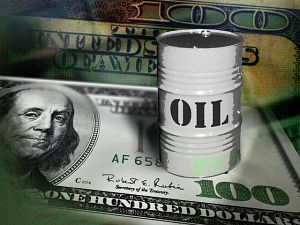Global financial institutions including the International Monetary Fund and the World Bank have released a new set of recommendations for G20 countries to meet their goal of providing $100 billion a year in aid for developing nations to combat climate change. In addition to calls for charges on carbon emissions and higher prices for carbon-intensive fuels, the financial experts said the first source of funding should come from redirecting fossil fuel subsidies.
In a move that will surely leave the dirty energy industry in a fit of rage, global economists said that fossil fuel subsidies should be cut and redirected towards helping developing nations fight climate change. The total amount spent on industry subsidies for G20 countries is currently $60 billion a year, more than half of what the countries have pledged to spend per year on climate initiatives and renewable energy projects.
From The Huffington Post:
The draft paper says the starting point should be a review of fossil fuel subsidies, amounting to $40 billion to $60 billion a year. But many of those subsidies are handed out in poor countries, where people living on the edge of subsistence need help, for example, to buy cooking gas. Still, subsidy reforms in industrialized countries and emerging economies could contribute $10 billion a year to a climate fund, it said.
In the United States, the battle to preserve the dirty energy industry’s subsidies is one that the industry has handily won, time after time. When the issue came up for debate earlier this year, the industry and their defenders at the American Petroleum Institute and the Heritage Foundation led the charge to preserve billion dollar subsidies for dirty energy by claiming that the industry would be forced to cut countless jobs and raise energy costs if the subsidies were taken away.
They also enjoyed a helping hand from Republican Congressmen, including Texas Representative Joe Barton, who awkwardly told Congress that cutting subsidies would make oil companies like Exxon go out of business. Keep in mind, Exxon already pulls in more than $30 billion a year, while paying an effective federal income tax rate of 0% in 2009.
To make matters worse for the oil industry, former Shell CEO John Hofmeister informed America earlier this year that the industry would remain perfectly healthy with no changes in their business practices if their subsidies were to disappear. Hofmeister went as far as to tell us that the subsidies weren’t even necessary for the cash-flush industry.
Studies have shown that redirecting the subsidies given to the energy industry into renewable fuels would have a profound effect. The following chart from Solar Power Rocks tells the story:
Still, the dirty energy industry is not going to take the recommendation to cut their subsidies lightly. The G20 will convene in November of this year to discuss the recommendations, and the dirty energy industry will be watching the events at that convention like a hawk.
Subscribe to our newsletter
Stay up to date with DeSmog news and alerts







